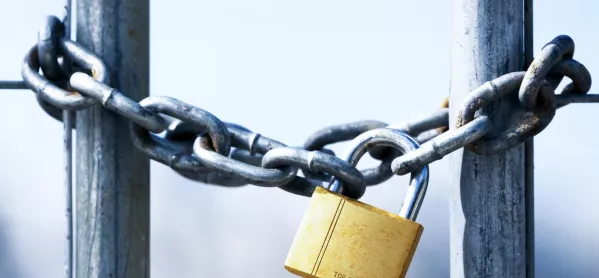Teachers are calling for an “urgent circuit-breaker” to close secondary schools and colleges for two weeks after a rapid increase in infection levels among pupils.
The NEU teaching union has made the call in reaction to news that coronavirus infection rate in secondary school-age children has risen by more than ninefold in a month.
It said that in response to the latest data it was calling “for an urgent circuit-breaker to suppress Covid cases” at half term.
Infections: Ninefold increase among secondary school pupils
Covid: UCU calls for two-week college circuit breaker
Warning: Schools have only just begun to contribute to rise in Covid-19, SAGE tells government
It comes after the UCU called for a two-week closure of colleges earlier today.
At the government’s Covid briefing today Prime Minister Boris Johnson did not rule out a circuit breaker but said that its triple tier local restrictions was a better approach than a national one.
Kevin Courtney, the NEU’s joint general secretary said: “The latest infection survey report from the ONS shows infection rates rising sharply amongst secondary age pupils - much more sharply than in any section of the population apart from university students.
“This should be no surprise to either the prime minister or the Department for Education - scientists have consistency told them that secondary students transmit the virus as much as adults, and we have warned them that because we have amongst the biggest class sizes in Europe we have overcrowded classrooms and corridors without effective social distancing.
“Our classrooms often have poor ventilation leading to airborne transmissions, and in many areas, we have also had overcrowded school transport where children are mixing across year group bubbles.
“These children live in families and are part of communities, so even if they have few or no symptoms themselves they are still part of spreading the virus to others, including to teachers and other school staff.
‘Get control of test, track and trace’
“Such a circuit breaker could allow the government to get in control of the test, track and trace system, and get cases lower to allow the system to work better.
“Heads, teachers and school staff understand the educational impact of this, but we also understand that in exponential epidemics early action is essential. Taking action now can avoid more disruption later.”
On 8 October, an estimated 0.93 per cent of children in Years 7 to 11 tested positive for Covid-19, compared to 0.1 per cent on 8 September, data from the Office for National Statistics (ONS) shows.
Mr Courtney added: “The government must also guarantee the expansion of free school meals and holiday food provision for the disadvantaged during any such circuit breaker.
“All the above are urgent measures. However we may be in this situation for another year or more: to help prevent future disruption, the government should take steps to mitigate risk by expanding school space, increasing staff and therefore ensuring smaller classes and a greater ability to maintain social distancing.
“Government should be working with schools on plans for blended learning. This work needs to happen now.
“The government must not just turn a blind eye and pretend all is going to be ok. They must not pretend that the only change needed is a delay of three weeks to next year’s exams. Urgent action is needed now.”
When asked today Mr Johnson refused a to rule out a circuit breaker school closure.
However when asked if a national circuit breaker would save more lives than the triple tier approach he said: “I don’t think it makes sense to be locking down the whole country when there is such a big difference in the infection rates across different parts of the UK.
“It really doesn’t make sense to lockdown Cornwall and North Norfolk and to close down businesses there in order to drive down transmission in parts of the North West”.
However Sir Patrick Vallance, the government’s chief science advisor, said that the SAGE group had recommended a circuit breaker last month.




